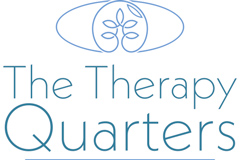Humans are naturally inquisitive, so being in therapy can often throw up some anxiety about our therapist; who really are they anyway? How do they cope when things get tough? What brought them to this point in their life?
The therapeutic relationship is one like no other. One where the focus is on us, the client. We explore ourselves, how we connect with others and the world around us, we look at our past and our hopes for the future and often, our inquiries of our therapist go unanswered in favour of why it’s important for us to ask the question.
Here we will introduce you to some of our team so you can get to know a little more about them without it impacting your sessions where their focus is, rightly, on you. We asked our therapists 10 questions and will publish their answers in a series of blog posts.
So, grab a cuppa (and a biscuit or two) and settle into our Therapy Quarters interview with Steve Mills…
What made you decide to become a therapist?
Working with people has always been a passion of mine. I carry with me a deep curiosity about human stories/experiences and how they uniquely unfold. I would say I naturally grew towards becoming a therapist. Born out of a desire to help, alongside my own personal development journey.
What modality do you work in, and what made you choose that path?
My training is in integrative psychotherapy. I would describe my offering as assimilative integration. I am grounded in a person centred modality, with a ‘blending in’ of attachment theory principles where necessary. I chose this path because I believe that all humans are essentially good beings. Given the necessary conditions, I think that we all have within us a tendency to move towards healing and growth. I trust that given a good enough environment, we humans will engage in a continual process of becoming who we really are.
A deepening of my own process by reflecting on my childhood illuminated another interweaving path. I uncovered how I attempted to attach to significant others during infancy. Not only did my attachment style help me to survive, it may have instilled some lifelong attachment behaviours. Behaviours that continue to play out in adult relationships whenever I feel unsafe and insecure. By understanding the process of human attachment more intimately, I have built trust in the therapeutic benefits of being attuned to someone who offers safety, deep care and a secure base to help self soothe and regulate emotions.
What is the best compliment you have ever received?
My year 7 French teacher expressed – “I have no idea what you will be Steve, but I think you will be something.”
If you could only listen to one song for the rest of your life, what would it be and why?
Whilst I like the original “Your song” by Elton John and Bernie Taupin, I prefer listening to Ellie Goulding’s cover version. I find that it allows me to connect with my own experience of unconditional love. I hear and feel a tenderness that is entwined throughout the piece of music.
Name two ways you regulate your own emotions.
There are so many ways!
The first step for me is to notice and wonder about the emotions I might be experiencing. If I can find the words, I try and name them, if not, I do my best to stay with my experience just ‘as it is’, without judgment. If I am experiencing some big emotions that are difficult to cope with, I focus on regulating my breath. By either “square breathing” or the “straw breath” technique. Regulating my breath helps me regulate my emotions. I find it helpful to write down my experiences in my journal and then reflect on them once I feel okay again.
What does mental ill-health mean to you, and why can it be hard to overcome?
To me, mental ill-health can denote periods of “stuck-ness”. Stuck with what happened, stuck with intrusive thoughts, stuck with unwanted feelings, stuck in a neglectful environment, stuck in an abusive relationship… Any type of stuck-ness can be impactful and brings with it unique personal experiences of mental ill-health.
It can be greatly challenging to overcome because when you are “in it”, it can feel like it might last forever. It can be such a struggle to be seen, heard and find a way to mental wellness. But, you can become un-stuck. Change, recovery and healing are all possible.
What five words best describe you?
Whole-hearted, Gentle, Empathic, Adventurous, Funny
What is the first symptom you notice when you feel sad?
When I feel sad, I can usually feel it somewhere in my body. It can be in my stomach, and/or behind my eyes. I allow myself to safely sit with sadness and if needed I am supported by knowing that it is okay for men to cry.
If you could travel back in time to visit your younger self 10 years ago, what advice would you give yourself?
Don’t sweat the small stuff. You don’t have to be perfect to matter…
What is one item you can’t live without?
“The guest house” – a poem by Rumi
A personal thank you from me (Jaye) to Steve for sharing this poem, it struck a chord with me too, if you click above you’ll be able to access the poem and see if it resonates with you. If it does, please get in touch and let us know your responses.
You can find out some more about our therapists and the support they offer by visiting our website: https://thetherapyquarters.com/therapist-profiles/
Stay tuned for the next one of our “interview with…” series. If there are any questions you’d like to ask a therapist but have never had the courage to, then send me an email via the “make an enquiry” tab, and I’ll see what I can do 😊

